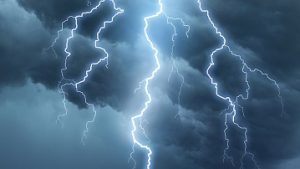This is mark Joseph “young” blog entry #454, on the subject of In re: Comes the Storm.
When the publisher dropped me a note asking if I would write a few words about a pending book of inspirational poetry, Comes the Storm by Deborah L. Kelly, I thought I was a bad fit for such a task; however, apparently they wanted someone with a theological background to write a few words, and they thought of me. I hope they don’t regret it too badly.

I have two problems going into this. The one is that I have never found “inspirational” books at all inspiring. Even “good” devotional books leave me cold. I suppose I’m too intellectual for that sort of thing.
The other problem is that I’m very picky about poetry. There are two kinds of poems that I enjoy. The one is nonsense poetry, such as Ogden Nash or Lewis Carroll. The other is traditional poetry with well-structued rhyme and meter, such as Robert Frost. I believe with Chaucer that poetry is an art form for the ear, not the eye, and that prose does not become poetry simply because of the way the words are arranged on the page. In short:
Seventeen syllables in
Three lines make a poem.
Oh star–the fairest one in sight–we grant your loftiness aright to some obscurity of cloud; it will not do to say of night, since dark is what brings out your light. Some mystery becomes the proud, but to be wholly taciturn in your reserve is not allowed.
To my mind, if you can write it all out in a single line and recognize the poetry when you read it, it’s a poem; if you are scattering prose on a page to look pretty, it’s pretty prose. It might be poetic, but I draw a sharp line between poetic prose and actual poetry; and I’ve written both.
So I had low expectations going into this.
Indeed, I am breaking one of my rules by writing a review of a book I never finished reading. Part of that was the ebook format, and the fact that I saw no simple way to bookmark my place, and so I had to try to find where I was every time I had to reopen it; I expect that will be resolved in the published version. Part of it, though, was that the modernist poetic style all blurred together, and while I could probably have defined differences between the poems, for practical purposes I often could not tell whether the one in front of me was one I had read before or not. As I said, this was not at all my sort of book.
On the other hand, it was often well written. I frequently felt as if I were reading passages from the Psalms or Wisdom books or some of the Prophets. If inspirational books appeal to you, this probably should be on your list. It comes through as sincere and devoted.
Since I was asked to review this based on the fact that I am, in some sense, a theologian, I ought to say something about the theology. I am of the belief that everyone is wrong about something, including me, and that part of our spiritual growth is recognizing our errors and attempting to correct them. I have never known anyone with whom I was in complete agreement about everything, and frankly I do not expect to do so in this life. That said, while I did not agree with everything in this book, it was all within the bounds of orthodox Christian belief. As long as the reader does not take it as divinely inspired scripture, it is as sound as one could ask–and I would say that about my own writings.
Take that with however many grains of salt you wish.
